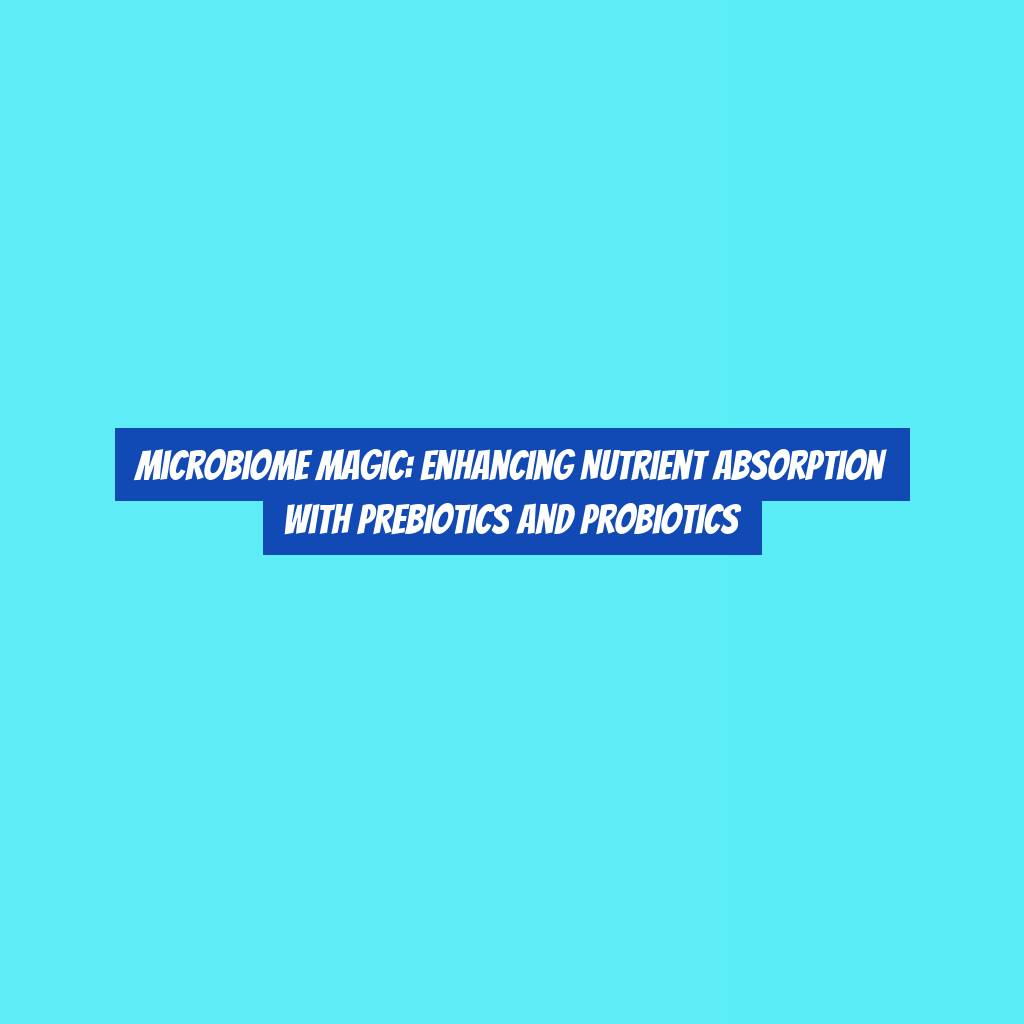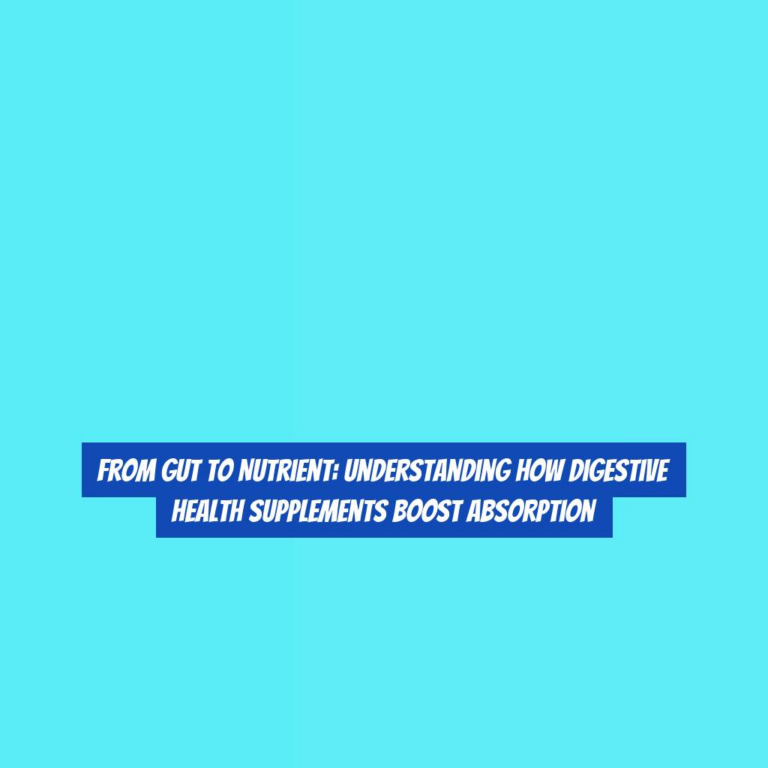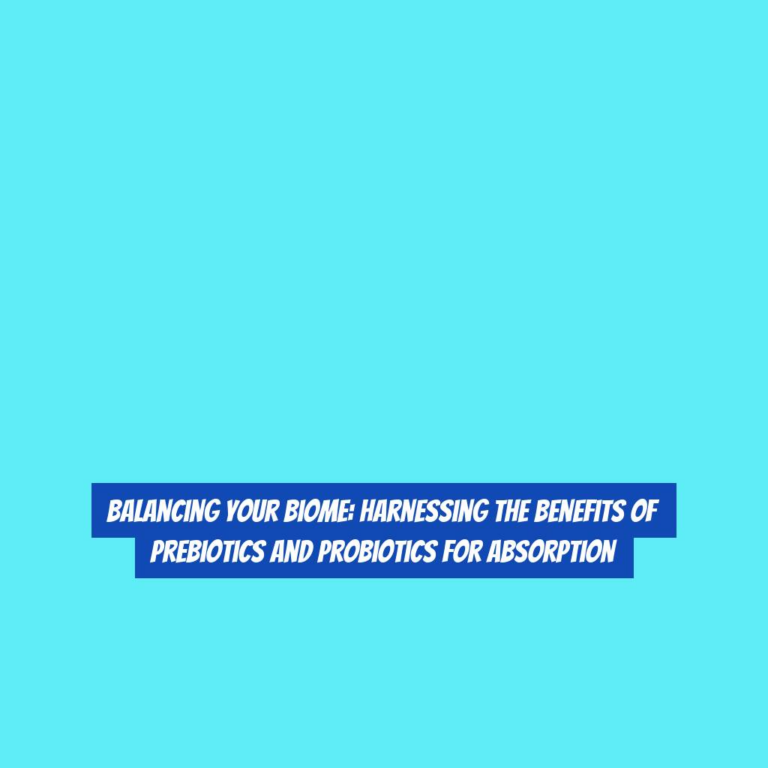Microbiome Magic: Enhancing Nutrient Absorption with Prebiotics and Probiotics
YouG??ve heard about the importance of a balanced diet and regular exercise for overall health, but have you considered the role of your microbiome in nutrient absorption?
Prebiotics and probiotics have been gaining attention for their potential to enhance this process, but how exactly do they work, and what benefits can they offer?
Understanding the impact of these microbiome G??magicG?? components on your digestive system could be the missing piece to unlocking better nutrient absorption and overall well-being.
The Role of Microbiome in Digestion
The microbiome plays a crucial role in your digestion by assisting in the breakdown and absorption of nutrients from the food you consume. Your gut is home to trillions of bacteria, fungi, and other microorganisms that form a complex ecosystem known as the microbiome. These microorganisms work together to help break down food components that your body canG??t digest on its own, such as certain fibers, and then ferment them into beneficial compounds like short-chain fatty acids and vitamins.
Furthermore, the microbiome plays a key role in the absorption of nutrients. It helps to break down complex carbohydrates into simpler sugars, proteins into amino acids, and fats into fatty acids, making it easier for your body to absorb these essential nutrients. Additionally, the microbiome assists in the production of certain vitamins, such as vitamin K and some B vitamins, which are vital for various physiological functions.
In essence, a healthy and diverse microbiome is essential for optimal digestion and nutrient absorption. By nurturing your microbiome with prebiotics and probiotics, you can support its ability to efficiently break down food and maximize the absorption of nutrients, ultimately promoting overall well-being.
Understanding Prebiotics and Probiotics
To gain a better understanding of prebiotics and probiotics, itG??s essential to recognize their distinct roles in supporting gut health and overall well-being.
Prebiotics are non-digestible fibers that act as food for the good bacteria in your gut. They help stimulate the growth and activity of beneficial bacteria, aiding in the maintenance of a healthy gut microbiome.
Probiotics, on the other hand, are live beneficial bacteria that can be found in certain foods or supplements. When consumed, they can help restore and maintain a healthy balance of good bacteria in the gut.
Key Points:
Prebiotics: These are non-digestible fibers that serve as food for the beneficial bacteria in your gut. They help in promoting the growth and activity of good bacteria, contributing to a healthy gut microbiome.
Probiotics: Live beneficial bacteria that can be consumed through specific foods or supplements. They aid in restoring and maintaining a healthy balance of good bacteria in the gut.
Overall Impact: Both prebiotics and probiotics play crucial roles in enhancing gut health, which in turn can have positive effects on overall well-being.
Benefits of Prebiotics and Probiotics
Understanding the roles of prebiotics and probiotics in supporting gut health, you can now explore the numerous benefits they offer for overall well-being.
Prebiotics, such as inulin and oligofructose, act as food for the beneficial bacteria in your gut, promoting their growth and activity. This, in turn, can enhance digestion and nutrient absorption, leading to better overall digestive health. Additionally, prebiotics have been linked to improved immune function, as they help maintain a healthy balance of gut bacteria, which plays a crucial role in immune system regulation.
On the other hand, probiotics, or the live beneficial bacteria themselves, offer a range of benefits. They can help maintain a healthy balance of gut microflora, which is essential for digestion and the synthesis of certain vitamins. Probiotics also support the gut barrier function, helping to prevent the invasion of harmful bacteria and pathogens. Furthermore, these beneficial bacteria have been associated with reduced inflammation and improved symptoms of certain digestive disorders, such as irritable bowel syndrome (IBS) and inflammatory bowel disease (IBD).
Enhancing Nutrient Absorption
How can prebiotics and probiotics enhance your bodyG??s absorption of essential nutrients?
The combination of prebiotics and probiotics can work wonders for your nutrient absorption. HereG??s how:
Improved Gut Health: Prebiotics, which are non-digestible fibers that stimulate the growth of beneficial bacteria in the gut, create a favorable environment for probiotics to thrive. Probiotics, on the other hand, are live beneficial bacteria that aid in the breakdown and absorption of nutrients. Together, they promote a healthy gut microbiome, which is crucial for efficient nutrient absorption.
Enhanced Absorption of Specific Nutrients: Certain nutrients, such as calcium, iron, and B vitamins, require a delicate balance of gut bacteria for optimal absorption. Probiotics can help increase the bioavailability of these nutrients, ensuring that your body can make the most of the vitamins and minerals you consume.
Reduction of Inflammation and Digestive Issues: By supporting a healthy gut microbiome, prebiotics and probiotics can help reduce inflammation and digestive issues that may hinder nutrient absorption. A balanced gut flora can lead to improved overall digestive function, allowing for better absorption of essential nutrients.
Incorporating prebiotics and probiotics into your diet can lead to enhanced nutrient absorption, ultimately supporting your overall health and well-being.
Incorporating Prebiotics and Probiotics Into Your Diet
Incorporate prebiotics and probiotics into your diet to support the improved gut health and enhanced nutrient absorption discussed earlier.
Prebiotics are non-digestible fibers that act as food for the good bacteria in your gut. You can find prebiotics in foods like bananas, onions, garlic, and asparagus. Including these in your diet can help to stimulate the growth of beneficial bacteria in your gut.
Probiotics, on the other hand, are live beneficial bacteria that can be found in fermented foods like yogurt, kefir, sauerkraut, and kimchi. These foods can introduce helpful bacteria into your digestive system, promoting a healthy balance of gut flora.
To incorporate prebiotics and probiotics into your daily routine, consider adding a serving of yogurt with live cultures to your breakfast or enjoying a side of sauerkraut with your lunch. Snacking on a banana or including onions and garlic in your dinner recipes are also great ways to increase your prebiotic intake.
Conclusion
Incorporating prebiotics and probiotics into your diet can work wonders for your digestive system. By enhancing nutrient absorption, these microbiome magic supplements can help you make the most of the nutrients in the foods you eat.
So, next time youG??re at the grocery store, consider picking up some prebiotic and probiotic-rich foods to support your gut health and overall well-being. Your microbiome will thank you!






